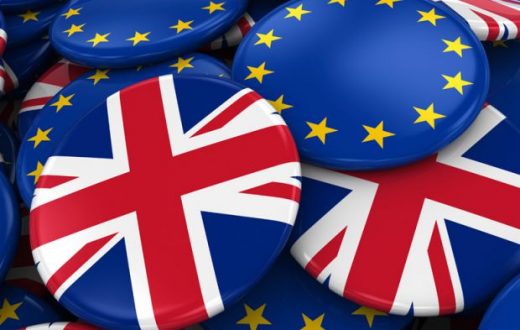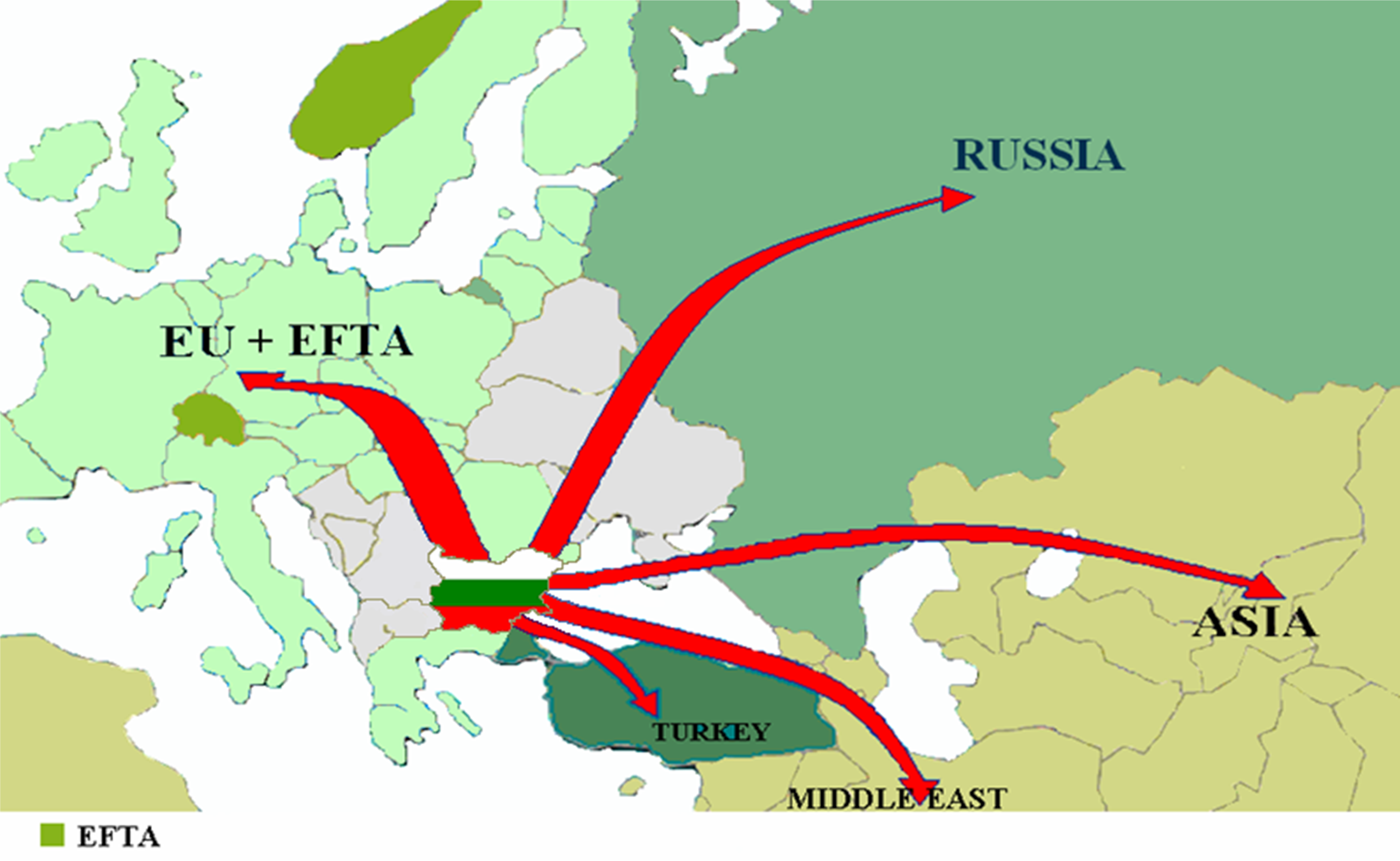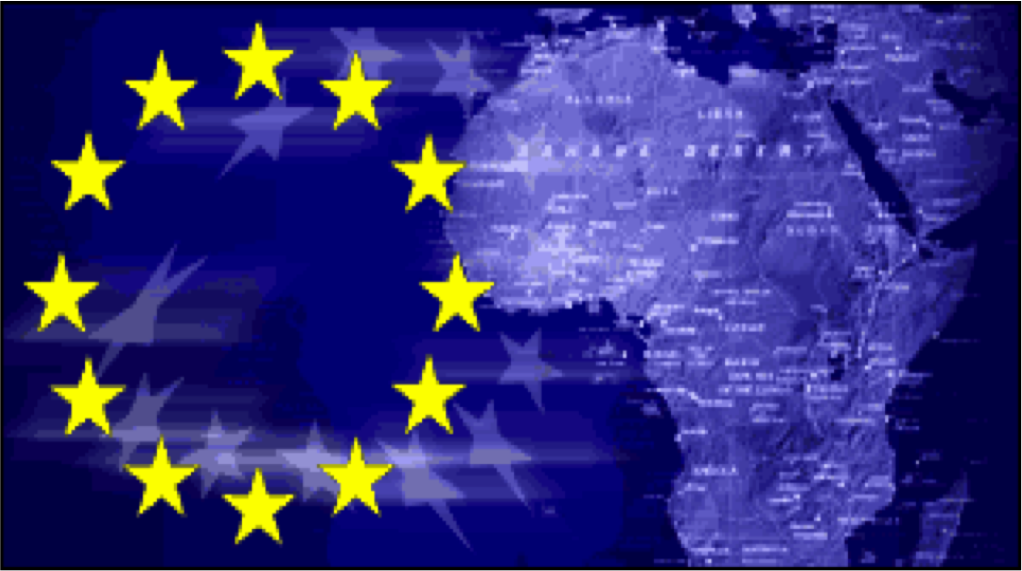Forecast
- German conservatives’ criticism of what they perceive as Berlin’s soft approach to EU issues will not abate and will affect Germany’s foreign and domestic policies in 2016 and particularly after elections in 2017.
- Within two years, conservative and mildly Euroskeptic governments are likely to rule in Germany and France — the main economic and political players in Europe.
- Berlin and Paris will continue to have different ideas regarding the future of the European Union, but rather than debating on how to deepen continental integration, they will discuss how to reverse some aspects of integration to preserve the bloc.
Analysis
German Chancellor Angela Merkel is struggling to preserve the cohesion of the German government. The leaders of the three parties in power — Merkel’s conservative Christian Democratic Union (CDU); its Bavarian sister party, the Christian Social Union (CSU); and the center-left Social Democratic Party (SPD) — met Oct. 31 but failed to reach consensus on measures to cope with the immigration crisis. However, after the meeting officially ended, Merkel and Bavarian President Horst Seehofer released a joint position paper calling for the creation of transit zones for migrants at the Germany-Austria border and the suspension of family reunification for certain groups of migrants. During a Nov. 5 meeting, the three parties replaced the idea of transit zones with a proposal to build new reception centers for immigrants and plans to make deportations faster.
These actions confirm that pressure from the Bavarian party is shaping Merkel’s reaction to the refugee crisis. They also show that Merkel thinks she can convince the SPD, which is against the creation of transit zones, to adopt a tougher stance on immigration. Neither the SPD nor the CSU is ready for early elections, so the continuity of the government is not in danger at this point. But the events of 2015 have shown the limitations of a grand coalition government in times of crisis and will push Germany’s main political forces to redefine their ideological positions before the general elections of 2017.
Two Crises in One Year
Berlin spent the first half of 2015 focusing on Greece, which got dangerously close to leaving the eurozone. During the second half of the year, Berlin had to deal with the immigration crisis as hundreds of thousands of asylum seekers moved across Europe trying to reach the wealthy economies in the north. These crises sparked revolts among conservative factions in the German government and created confusion among progressive factions.
When it comes to the European Union, Germany needs to keep the continental bloc alive, especially for its relationship with France. It also needs to protect its national wealth and prevent the European Union from becoming a transfer union in which wealthy economies in the north subsidize those in the south. Though most German politicians are interested in protecting both imperatives, the largest parties have different views of what is the best balance between the two.
In general, the CDU and the CSU tend to prioritize the protection of Germany’s national wealth and think that Berlin and its neighbors should focus on the establishment of strong rules to govern an increasingly complex European Union. The SPD agrees with this view, but it tends to be more willing to make concessions to other countries, especially those in the south, to ensure the European Union’s political viability. Finding the right balance becomes particularly hard when Germany is ruled by a grand coalition that includes the three parties.
In the early months of her third term, Merkel implemented many measures from the progressives’ agenda, including passing a minimum wage and lowering the age of retirement. The measures disoriented both camps. The progressives accused Merkel of using their agenda to boost her popularity. The conservatives warned she was moving too close to the center. During the Greek crisis, Merkel’s efforts to extract concessions from Greece without expelling it from the eurozone infuriated many conservative lawmakers. SPD members were also unable to choose between their natural tendency to accommodate a fellow center-left party (Greece’s Syriza) and most German voters’ desire to be tough on Athens.
The refugee crisis is creating similar problems. The CSU and several members of the CDU demand a tougher stance on asylum seekers, which explains Merkel’s recent policy shift. The SPD is trapped between its ideology, which tends to be sympathetic with asylum seekers, and the growing fear among voters that the German state is spending too many resources to deal with a migrant influx of a size that is still impossible to determine. In the meantime, Merkel’s image as an efficient problem solver has been damaged, maybe permanently.
Avoiding the ‘Die Linke’ Trap
As the next general elections approach, Germany’s main parties will try to more clearly define their positions after four years in a grand coalition. The conservatives’ main concern will be preventing the emergence of new electoral parties on the right. Other conservative parties have rarely competed with the CDU and the CSU. The closest these parties saw to competition was the Free Democratic Party, a small centrist party that formed government alliances with both the CDU and the SPD.

For the SPD, however, the situation is more complex, as disenchanted SPD voters express their anger at the party by turning to the left-wing Die Linke (The Left) or to the environmentalist party The Greens. Disenchanted CDU and CSU voters have little to choose from — or at least they did until the Euroskeptic Alternative for Germany emerged in 2013. The party, which was born as a sophisticated club of university professors campaigning against Germany’s membership in the eurozone, soon evolved into an anti-immigration party with a more traditional right-wing agenda. Alternative for Germany’s rebranding coincided with the anti-Islam Pegida group’s rise in popularity.
Germany’s history and political culture will prevent Alternative for Germany from entering a coalition government any time soon. However, the party will influence the country’s political debate far beyond what its current popularity (around 8 percent) suggests. As the Greek crisis — and especially the immigration crisis — shows, a combination of ideology and fear of losing votes to Alternative for Germany is pushing CDU and CSU politicians to adopt more nationalist and mildly Euroskeptic positions. Meanwhile, the SPD will have to decide between turning to the left and building a clearer identity, and jumping on the Euroskeptic bandwagon.
Repercussions for the European Union
In the coming years, Germany’s view of the European Union will probably resemble that of German Finance Minister Wolfgang Schaueble, who sees it as a continental bloc that moves at multiple speeds, in which not every country is meant to reach the same level of political and financial integration and problematic members can be expelled. This view would keep several Central and Eastern European nations from entering the eurozone. Countries such as Poland and Hungary would probably agree with this approach; Warsaw and Budapest are not particularly enthusiastic about joining the common currency. Moreover, because crises in the eurozone periphery are far from over, the possibility of Greece and others leaving the euro cannot be ruled out.
Germany’s coming approach to Europe will probably also include small doses of the CSU’s view of a European Union where foundational principles such as the free movement of people could be suspended or reversed to protect national and regional interests. Germany’s new view could also have some elements of the SPD’s foreign policy agenda, which is based on cordial but distant ties with the United States and fluid energy and trade ties with Russia.
The transition will be slow and will not be fully felt until after elections in 2017. However, 2016 will offer some early signals of the change. To begin with, Germany will probably be more receptive to the United Kingdom’s request to protect the interests of non-eurozone countries, keep the EU budget under control and curtail immigrants’ access to welfare benefits. A full revision of the EU treaties is unlikely, but Berlin and London will work on ways to accommodate some of the United Kingdom’s requests. At the same time, Germany will resist France’s push for deeper financial integration, especially if it means creating separate budgets for the eurozone or a mechanism for fiscal transfers from northern Europe to the south.
In the short run, this will create friction between Berlin and Paris. However, it could be short-lived, because France will probably become more Euroskeptic after it holds its own general elections in 2017. The ruling Socialist party will struggle to make it to the second round of France’s presidential elections, which will probably end up pitting a moderately Euroskeptic center-right (especially if former President Nicolas Sarkozy defeats Alain Juppe to become the conservative candidate) against a ferociously anti-EU right (the National Front).
The next administration in Paris is likely to make two policy decisions that Berlin will support: defending tougher policies on immigrants and preventing new countries from joining the European Union and the eurozone. But a more nationalist government in France could also request the introduction of temporary exceptions in the free movement of goods in Europe to protect some sectors such as agriculture. This would be the ultimate red line for Germany, a nation that depends on exports to keep unemployment at tolerable levels.
Disagreements between France and Germany will not end with the elections in 2017, but the nature of the debate will change. Since the beginning of the economic crisis, the discussions between Paris and Berlin focused on how to deepen European integration to prevent new crises. This was controversial enough, because Berlin and Paris have different views on what the future integration should look like. However, starting in late 2017, the debate will begin focusing on how to reverse some aspects of continental integration to try to save the European Union.








